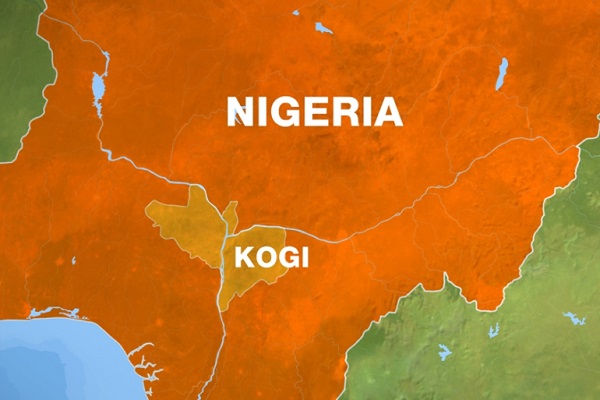Pix by NEMA’S Yushau Shuaib
As floods continue to wreak havoc in several States of Nigeria, destroying farmlands growing rice, maize and other crops, reports of damages pouring from all parts of the country point to a severe destruction of agricultural areas, prompting fears of imminent food security threats.
A report together by a group of journalists in Abuja who toured some of the ravaged areas of the country says that concerns on food security are coming at a time when the Federal Government is contemplating the implementation of increased tariffs for importation of rice and eventually stopping importation by 2015. The 2013 budget proposes a 10 percent duty plus a 100 percent levy on imported polished rice. Several voices of concern are emerging from all sectors, urging the federal government to reconsider increasing the tariffs to a prohibitive level of the envisaged 100%.
Concerns over food security were raised recently by no less a person than the Minister of Environment, Hajiya Hadiza Mailafia, who spoke to State House Correspondents after a meeting of the Federal Executive Council about two weeks ago. Mrs. Mailafia revealed that several thousand farmlands had been destroyed by the ravaging floods across the country. She said, “the consequences of the floods are that there are huge losses of farmlands, there are likely threats to food security, we are likely going to have challenges that have to do with the health of the people in some areas”.
Speaking in a similar vein, the Federal Director of Agriculture in Adamawa, Wali Hamman, stated in an interview in Yola on Tuesday last week that there was a real possibility of food crisis in Adamawa State this year.
The Federal Director noted that considering the huge damage on the farmlands, there is likely to be a food crisis in the state if immediate action is not taken to address the situation. He said “most of the farmers affected by the disaster are more preoccupied with how to save themselves and their families from the disaster than of their farms”.
Kano State has equally been badly affected by the floods resulting in disruption to rice production in the State. In a statement by an association of rice growers in the state on Monday, rice farmers in the state lamented that about 95% of all rice farms have been destroyed by the floods that washed them away. According to the statement, the worst affected areas include Warawa, Doguwa, Wudil, Gabasawa, Ajingi and Gaya local governments. These, the statement noted, were the areas that were producing rice in large scale. They predict that the prices of food stuff, especially rice and maize, would go up this year as a result of the disaster.
In Plateau State where the government says the flood that affected eight local government areas in the state had washed away eight bridges and rendered more than 10,000 people homeless, Abraham Yiljap, the state’s Commissioner for Information and Communication told newsmen after the weekly executive council meeting on Thursday that more than 100 villages and 4,000 hectares of farmlands were destroyed.
Mr. Yiljap said the local governments included Kanam, Wase, Shendam, Lantang North, Lantang South, Mikang, and Qu’an Pan, Jos East and Jos North.“Unfortunately and tragically, Plateau has been affected by another flood disaster after the one in Jos North,” he was quoted to have said.The commissioner said several crops had also been washed away by the disaster.He also said the situation would lead to likely shortage of food supply in the state as the areas ravaged were mainly agricultural areas.
In addition to this, Mrs. Sarah Yusuf, the State’s Commissioner for Environment said the floods had caused the death scores of people in Jos. Addressing Journalists in the state capital on Thursday, Mrs. Yusuf said the warning by her ministry was to prevent more deaths as a result of the impending flood.
Meanwhile the Bayelsa State government has temporarily closed all schools in the state, as a result of rising water level all over the State. Iworiso-Markson disclosed that the order is with immediate and indefinite. Reports from the North Central zone say that in Kogi State alone more than 600,000 people have been displaced by the floods as revealed by a top government official.
According to him, education, agriculture, health and roads are some of the sectors already identified to have been badly affected. He expressed regrets that communities ravaged by the flood were the food basket of the state, saying that the situation constituted a threat to food security and health of the people.
In addition to these, more than 4,700 inhabitants of communities in Edu Local Government Area of Kwara State, namely Bele, Emi, Faigi, Tswatako, Patako, Tada, Shonga, EdogiDukun, Yemagi, among others, were also rendered homeless due to a heavy rain early last week.
Similarly, over 3,200 hectares of rice plantation under the authority of Tada-Shonga Irrigation Scheme in Edu Local Government Area, also in Kwara have been washed away by flood.
Based on all these reports, experts have warned in reaction to the budget that increased tariffs in the absence of adequate local production would lead to skyrocketing of rice prices, adding to the inflationary pressure already in place. They called on the Federal Government to review the proposed tariff structure with a view to maintaining sanity in rice prices for the average consumer of this staple product.




